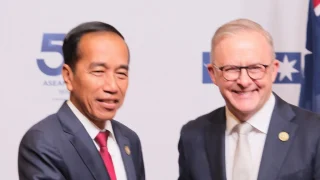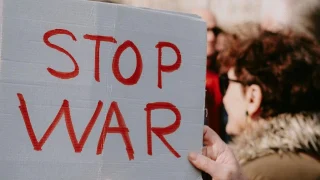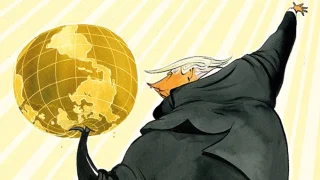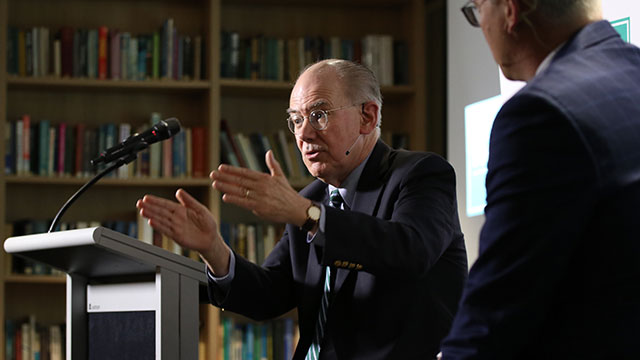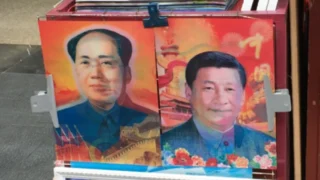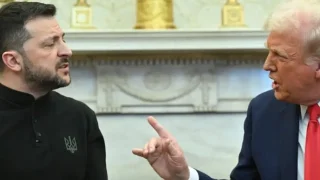
Papua New Guinea politics and development have become a focus for Australia in light of China’s increasing influence in the region.
Australia’s ‘step up’ in the Pacific is now five years old and needs a more ‘up tempo’ approach, particularly in Papua New Guinea (PNG) where China’s influence has grown significantly – from building PNG’s national data centre to backing a Chinese company’s proposal for a new fisheries facility just kilometres from Australia’s northernmost border in the Torres Strait.
At times, China has simply proved more agile in effectively expediting its commitments in PNG. An illustrative example is Manus Island. Australia and the United States pledged to upgrade Lombrum naval base some three years ago, but little progress has been made. Meanwhile a subsidiary of the same construction company that built China’s artificial islands in the South China Sea has upgraded Momote airport, a twenty-minute drive from Lombrum.
This paper argues that the opportunistic nature of Chinese foreign policy demands vigilance from Australian policymakers. It recommends some ways Australia can use its tools of statecraft to mitigate China’s influence and competition, whilst also warning that Canberra should not lose sight of its longstanding interests in PNG’s self-development at both a national and grassroots level as this competition intensifies.
Chinese influence in Papua New Guinea politics
China’s influence has grown significantly in Papua New Guinea (PNG) over the past 10 years. In Time to ‘Step Up’ the Tempo: Australia’s answer to Beijing in Papua New Guinea, author Sean Jacobs outlines that while other nations are distancing themselves from Beijing, PNG’s leaders and government have strengthened their relationship. This includes PNG’s commitment to the One China policy and to conducting ‘win-win cooperation’ with China that could give it a bigger grip on our region.
“The Beijing-backed 2020 proposal to build a fisheries facility (artificial island) in PNG waters — just kilometres from the Torres Strait — highlights China’s potential for gaining regional footholds, especially in physical proximity to Australian shores,” Jacobs says.
“Australia enjoys a unique historical and special relationship with PNG, and this should be reinforced to counter China’s growing tendency to impose its values and views on other countries.”
Jacobs says the Pacific ‘step up’, initiated by the Australian government in 2016 has been a positive move in signalling Australia’s shared values with the South Pacific, setting an overall approach and illustrating Australia’s renewed regional commitment and longstanding interests in supporting better development outcomes.
“However, this should be enhanced through greater Australian statecraft in PNG,” he says. “This includes new aid delivery methods to PNG, alliance-building through renewed regional commitments from the United States, improvements in people-to-people links, and further enhancements in Australia-PNG commercial links.
“Australia requires new tactics to work more closely in the region, mitigate China’s influence and, importantly, assist in Covid relief and post-Covid economic recovery, and improve conditions in PNG. “New strategic opportunities will continue to emerge in PNG, which the Australian government will need to seize in the age of great power competition,” he says.
Sean Jacobs is a Papua New Guinea-born Australian who is a former adviser at the Australian Department of the Prime Minister and Cabinet, and has worked with all levels of government in Papua New Guinea. He holds a BA (International Relations) from Griffith University and a Postgraduate Certificate in Policing, Intelligence and Counter Terrorism from Macquarie University. He also holds qualifications from the Australian National Security College, the Australian Institute of Management, and the University of New England.
ALSO READ: Papua New Guinea’s Choice: A Tale of Two Nations
SELECTED REFERENCES
Address to the Perth USAsia Centre, https://www.pm.gov.au/media/address-perth-usasia-centre-perth-wa
Stacy Hsu, ‘PNG demands new name for Taiwan office’, Taipei Times, 2 June 2018, http://www.taipeitimes.com/News/taiwan/archives/2018/06/02/2003694174
‘Commercial banks warned against leaving PNG’s shores’, The National, 18 September 2020, https://www.thenational.com.pg/commercial-banks-warned-against-leaving-pngs-shores/
‘GDP growth (annual %) – Papua New Guinea’, The World Bank, https://data.worldbank.org/indicator/NY.GDP.MKTP.KD.ZG?end=2020&locations=PG&start=2007
‘Latest Human Development Index Ranking’, United Nations Development Programme, http://hdr.undp.org/en/content/latest-human-development-index-ranking

